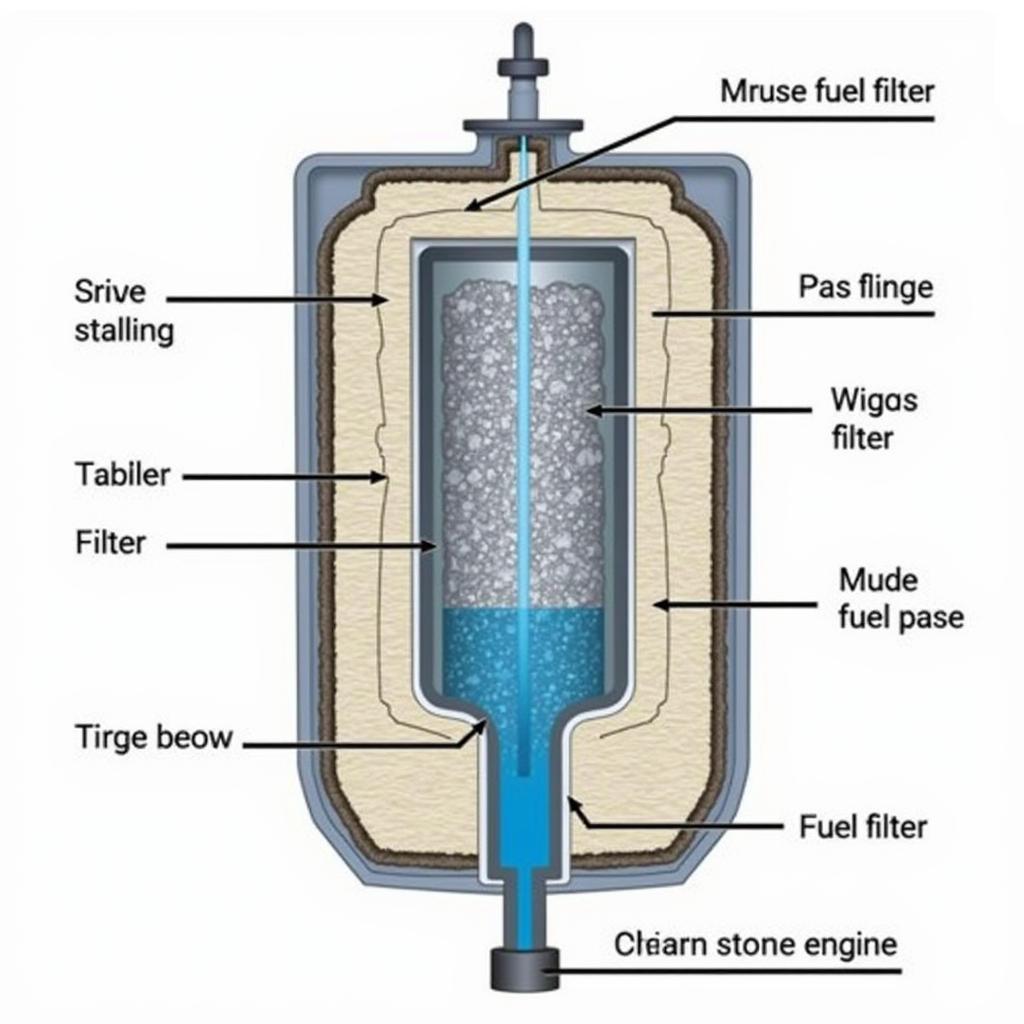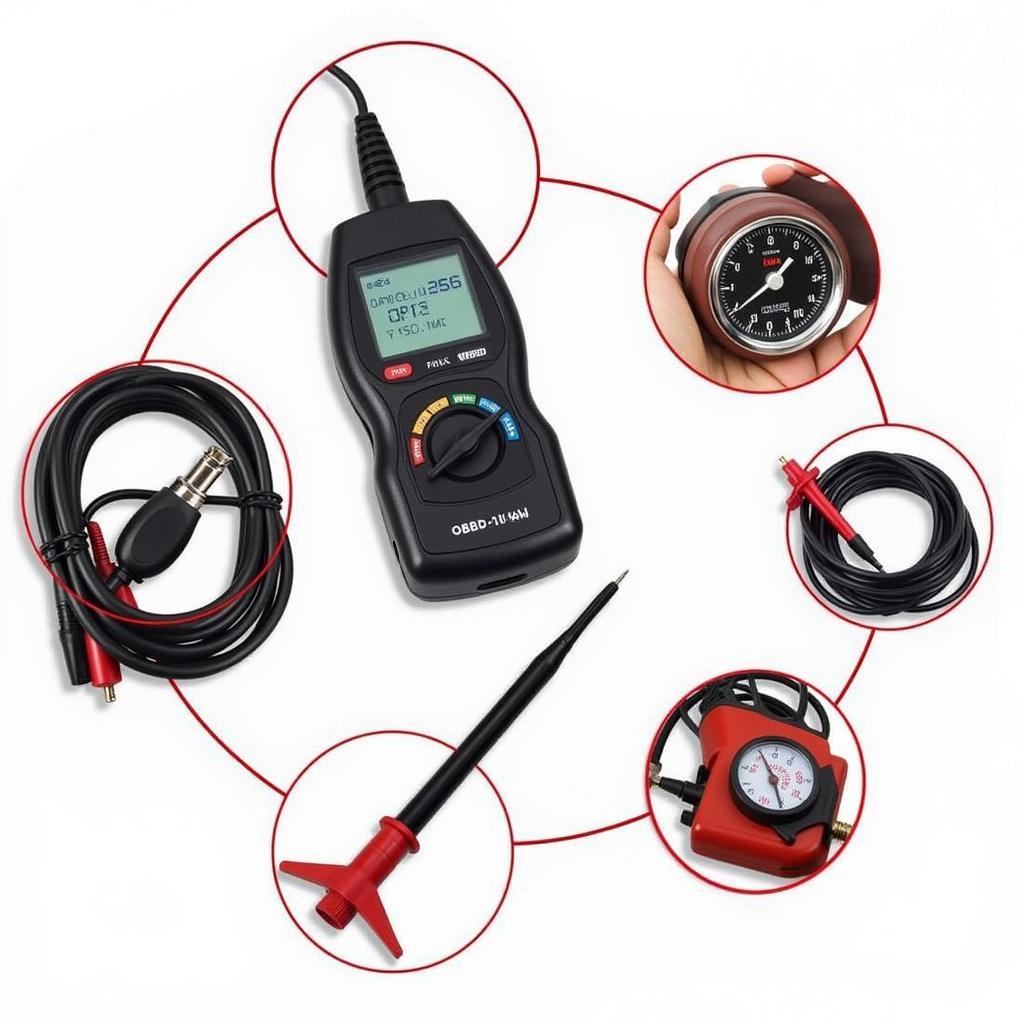If your car turns off when sitting idle, you’re not alone. This frustrating issue, often accompanied by sputtering, rough idling, or stalling, can stem from various causes. In this article, we’ll explore the most common culprits behind this problem and provide practical solutions to help you get back on the road.
Common Causes of a Car Stalling While Idling
Several factors can contribute to a car turning off while idling. Identifying the root cause is crucial for effective repair. Let’s delve into the most frequent issues:
Faulty Idle Air Control Valve
The Idle Air Control (IAC) valve regulates the amount of air entering the engine when idling. A malfunctioning IAC valve can disrupt the air-fuel mixture, leading to stalling.
- Symptoms: Rough idling, stalling at stoplights, fluctuating RPMs.
- Solution: Cleaning or replacing the IAC valve is often the solution.
Vacuum Leaks
Vacuum leaks occur when air enters the engine through unintended openings, disrupting the precise air-fuel mixture needed for proper idling.
- Symptoms: Hissing sounds, rough idling, stalling.
- Solution: Identifying and sealing the vacuum leak is essential.
Dirty or Clogged Fuel Filter
A clogged fuel filter restricts fuel flow to the engine, starving it of fuel, especially at idle.
- Symptoms: Stalling, difficulty starting, poor acceleration.
- Solution: Replacing the fuel filter is a simple yet effective fix.
 Clogged Fuel Filter Leading to Car Stalling
Clogged Fuel Filter Leading to Car Stalling
Failing Alternator
While not a direct cause of stalling, a failing alternator can indirectly lead to the issue. A weak alternator may not provide sufficient power to maintain essential engine functions, causing stalling at idle.
- Symptoms: Dimming headlights, flickering dashboard lights, clicking noises.
- Solution: Replacing the alternator is necessary to restore proper electrical function.
Faulty Sensors (MAF, O2, TPS)
Several sensors, including the Mass Airflow (MAF) sensor, Oxygen (O2) sensor, and Throttle Position (TPS) sensor, play crucial roles in regulating the engine’s air-fuel mixture and idle speed. Malfunctioning sensors can cause erratic idling and stalling.
- Symptoms: Rough idling, poor fuel economy, check engine light illuminated.
- Solution: Diagnosing and replacing the faulty sensor is crucial.
What’s the Problem When Car Turns Off When Sitting Idle: Troubleshooting Tips
If your car is turning off when sitting idle, here are some troubleshooting steps you can take:
- Check the dashboard for warning lights.
- Listen for any unusual noises, such as hissing or clicking.
- Inspect the air filter and fuel filter for clogs.
- Check the battery and alternator for proper function.
 Car Diagnostic Tools for Troubleshooting Stalling Issues
Car Diagnostic Tools for Troubleshooting Stalling Issues
Conclusion: Addressing Car Stalling Issues
A car turning off when sitting idle can be a frustrating and potentially dangerous problem. Understanding the common causes, such as a faulty IAC valve, vacuum leaks, or a clogged fuel filter, can help you diagnose and resolve the issue effectively. Remember, regular maintenance is key to preventing such problems. For expert assistance, don’t hesitate to contact Autotippro at +1 (641) 206-8880 or visit our office at 500 N St Mary’s St, San Antonio, TX 78205, United States. We’re here to help you keep your car running smoothly.
“Regularly checking your car’s vital components, like the IAC valve and fuel filter, can prevent many stalling issues,” advises John Smith, Senior Automotive Technician at Autotippro.
“A failing alternator can also indirectly contribute to stalling, so it’s important to keep your car’s electrical system in good condition,” adds Jane Doe, Lead Mechanic at AutoTipPro.




Leave a Reply